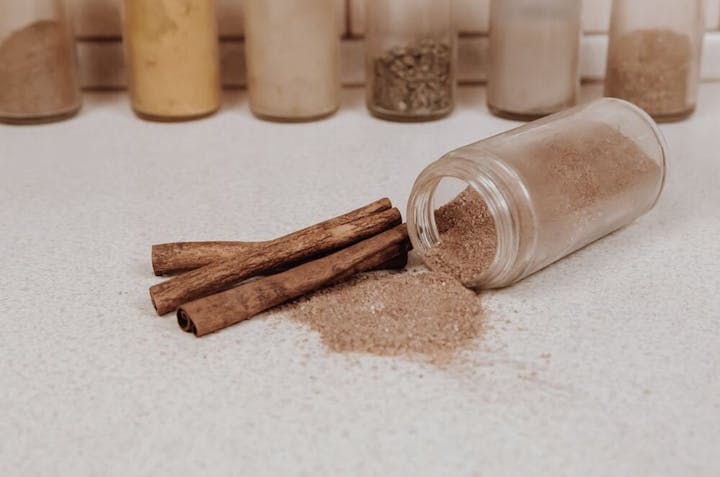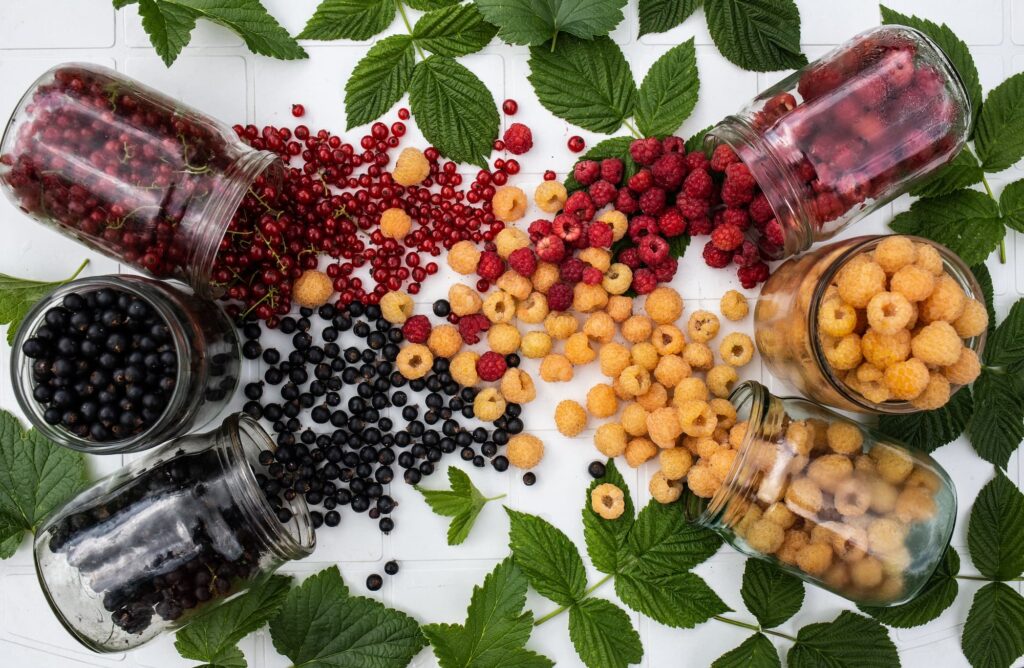Did you know that cinnamon is an incredibly versatile spice? It’s not just a great flavor enhancer for recipes, but it also offers various health benefits. In this article, we’ll share the pros and cons of cinnamon and recommend using this spice more often!
Recipes with Cinnamon
Most people are familiar with the taste of cinnamon from traditional holiday spices like gingerbread. It’s a beloved flavor used in sweet treats, but it can also be added in small quantities to healthier recipes. You can enjoy it by adding a teaspoon as a flavor enhancer to your oatmeal, on top of your fruits, with sweet potatoes, or in various (Asian) vegetables/meat dishes. Another option is, of course, adding it to your coffee or tea!

Is Cinnamon healthy?
Why? To begin with, cinnamon contains essential vitamins and minerals such as A, C, B2, and B6, as well as calcium, potassium, magnesium, zinc, and iron. It is a powerful antioxidant that can help protect your body against free radicals and aid in cell repair to counteract aging.
Research shows that food mixed with cinnamon stays fresh longer. It inhibits the growth of fungi and bacteria, making it effective against various fungal infections, including candida.
The benefits of Cinnamon
In Chinese medicine, cinnamon’s medicinal properties are recognized, as it may have beneficial effects on preventing heart and vascular diseases. Research indicates that cinnamon can positively contribute to maintaining a balanced cholesterol ratio in the body (the ratio between LDL, HDL, and triglycerides). Additionally, it may have anti-inflammatory effects, helpful for colds, sore throats, or relief for sensitive intestines.
Cinnamon and its effect on blood sugar levels
Several studies indicate that cinnamon can have a positive effect on blood sugar levels. It contributes to the slower absorption of carbohydrates, leading to a slower release in the body, reducing the workload on the pancreas.
This means that your blood sugar levels will experience fewer spikes, and you’ll experience fewer hunger cravings. Moreover, cinnamon improves blood circulation, which can boost your metabolism. It’s a useful spice if you’re conscious about your diet and trying to shed some pounds!

How much Cinnamon per day is healthy?
You may have heard that consuming too much cinnamon can be harmful. Most people can tolerate a normal dose of 1-2 teaspoons per day, but it’s essential to pay attention to your personal situation. Cinnamon contains coumarins, a substance that can thin the blood and slow down blood clotting. If you’re taking blood-thinning medication, it’s crucial not to exceed the daily dose.
Furthermore, a high dose of cinnamon can lower blood sugar levels. It’s essential for people with diabetes not to consume too much cinnamon. Always consult a specialist if you’re unsure about your specific situation.
Types of Cinnamon: Ceylon and Cassia Cinnamon
Lastly, it’s important to know that there are different types of cinnamon. The most common ones in the Netherlands are Ceylon and Cassia cinnamon. The quality and effects of both are different, so if you’re adding cinnamon for health purposes, it’s advisable to choose the right variant.
Ceylon cinnamon is often the more expensive and higher-quality variant. If you choose an organic version, you know it hasn’t been sprayed with toxic pesticides. You can find Ceylon cinnamon in some supermarkets, but you’ll have more success in specialty spice or health food stores (it should be specifically labeled as Ceylon).
The other variant, Cassia cinnamon, is the one most commonly found in supermarkets and is also more commonly used in the kitchen. This variant is cheaper, lower in quality, and contains more coumarins than Ceylon cinnamon.
So, choose the right variant, experiment, and enjoy! 🙂

